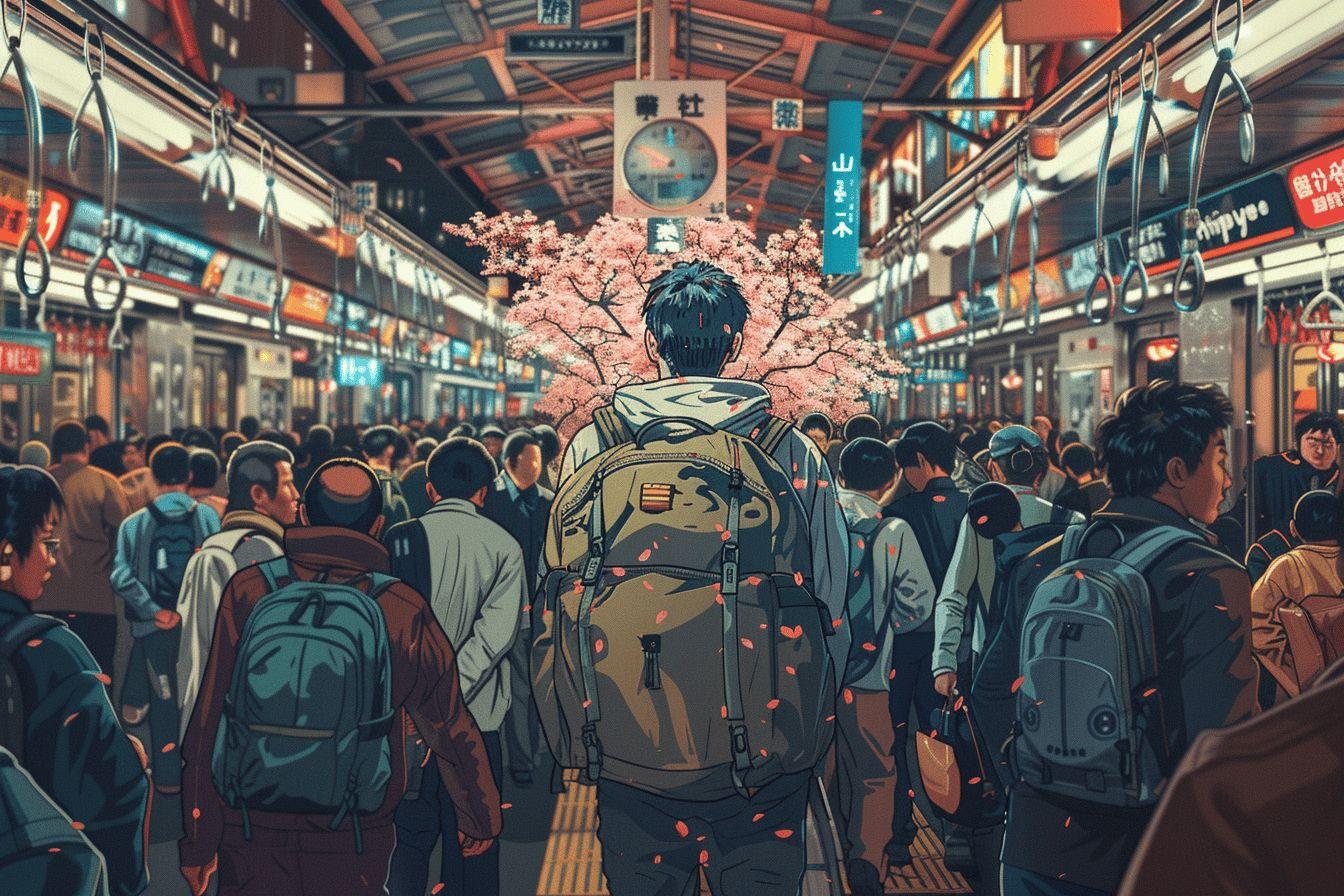Japan, famous for its culture of respect and politeness, sometimes sees its image tarnished by the behavior of certain tourists in public transport. Whether in the Tokyo subway or on the Shinkansen, foreign visitors are sometimes guilty of actions deemed inappropriate, such as excessive shouting or blatant rudeness. These behaviors, often linked to a lack of knowledge of local norms, provoke reactions of annoyance among the Japanese, who cherish peace and harmony in their daily travels. Let us therefore analyze the ways in which these behaviors highlight cultural differences and the impact they can have on coexistence between locals and tourists.
Japan is a country renowned for its commitment to politeness and respect for others. Despite this culture, the behaviors of certain tourists in public transport evoke negative reactions. From shouting to rude gestures, a number of attitudes can offend the Japanese, occasionally creating a divide between visitors and locals. This article explores the behaviors that disturb the island’s inhabitants the most when traveling by train, subway, or bus.
Too Loud Exchanges
Speaking loudly, whether in small groups or on the phone, is undoubtedly one of the most annoying behaviors for the Japanese. In this country where silence is often required, loud discussions are seen as a real violation of social norms. This incessant noise in the high-speed Shinkansen trains or in the subways annoys many passengers who seek to enjoy a moment of tranquility during their journey.
A Lack of Consideration for Public Space
Another unpleasant behavior for the Japanese is not to properly store their luggage. Tourists who leave their suitcases lying in the aisles can quickly block the passage and generate tensions. In train stations and terminals, Japanese users are accustomed to queuing and moving fluidly; not respecting these rules can lead to a feeling of discomfort.
Inappropriate Gestures
In addition to unwanted noise, certain behaviors, such as talking on the phone or eating on public transport, are often frowned upon. In Japan, it is customary to remain discreet and not to consume food in public transport. The various sounds made while eating can disturb the relatively calm atmosphere, and many members of society view this as a lack of respect for other passengers.
Queuing, a Sacred Code
Queues are another example of a social code that tourists may neglect. Just like respecting personal space, queuing is a norm deeply ingrained in Japanese culture. Failing to respect this rule, especially by not allowing passengers to disembark from the train, is often perceived as a disturbing incivility.
Toward Harmonious Coexistence
In a society where behavioral norms are highly valued, it becomes essential for tourists to be aware of the impact of their actions. By seeking to respect local customs, it is possible to establish an atmosphere of trust and mutual respect. A successful cultural exchange involves understanding and considering each other’s values.









